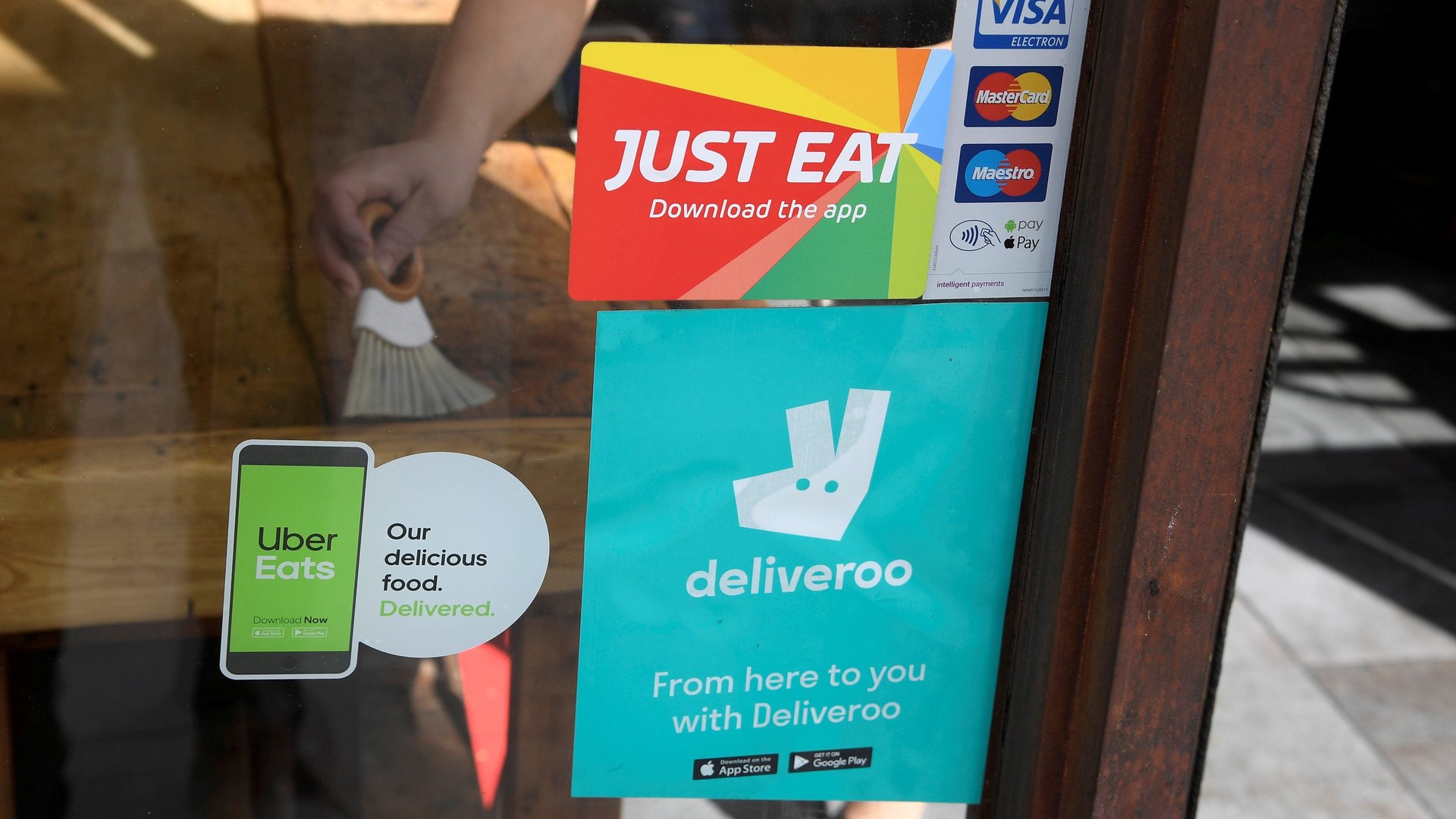Consolidation is coming for US food delivery, unless the government stops it first
To bolster its food delivery business, Uber has been on a dealmaking spree, looking to purchase companies that would expand its offerings. In the past year, the company has made a series of food and drink delivery acquisitions including Cornershop, Drizly, and Postmates. It has also formed several partnerships, including one exclusively with ultra-fast convenience delivery service GoPuff, a company reportedly worth $15 billion, and with major grocery chain Albertsons, which will expand Uber’s delivery service in the US to 1,200 Albertsons stores.


To bolster its food delivery business, Uber has been on a dealmaking spree, looking to purchase companies that would expand its offerings. In the past year, the company has made a series of food and drink delivery acquisitions including Cornershop, Drizly, and Postmates. It has also formed several partnerships, including one exclusively with ultra-fast convenience delivery service GoPuff, a company reportedly worth $15 billion, and with major grocery chain Albertsons, which will expand Uber’s delivery service in the US to 1,200 Albertsons stores.
But the recent deals have also caught the attention of regulators.
The US Federal Trade and Commission (FTC) is reportedly investigating two of Uber’s recent deals, including the acquisition of Drizly, an alcohol delivery service, and with GoPuff, according to The Information, a website that reports on technology. The FTC’s scrutiny over these deals reflects concern over Uber’s increasing market power, says Alex Frederick, a senior analyst at PitchBook, a research firm.
This is also not the first time Uber has raised regulatory scrutiny. Last June, the San Francisco-based company tried to acquire Grubhub, which would have made Uber the biggest US delivery player, but the deal fell through reportedly due to antitrust concerns.
In a highly saturated, low-margin market where most food delivery companies have yet to break even, consolidation offers a path to profitability, according to analysts. But antitrust rules could be an obstacle for these companies, which have long faced existential concerns around their business models.
How will food delivery get to profitability?
For food delivery companies, there’s only so many levers they can pull to make money. They can achieve profitability by improving delivery time and therefore completing more deliveries per hour, or lowering their costs, such as with labor, says Frederick. Then there’s consolidation. Becoming bigger by absorbing competitors means increased market power, which can be used to command higher fees from restaurants or customers.
The increasing consolidation in the online food delivery space could lead to reduced margins for restaurants and increased competition among local delivery players, he says.
During the pandemic, some restaurants have struggled with the hefty commission fees charged by food delivery companies, which can be as high as 30% of an order. That has led cities like Washington and Seattle to place caps on these fees.
Will food delivery companies be challenged?
But it’s hard to say whether the mergers or exclusive partnerships will lead to regulators challenging these companies. Food delivery is a fragmented market where a fair number of restaurants deliver on their own, and the FTC investigations could simply be dropped if it finds there are no antitrust issues, says Herbert Hovenkamp, a professor of legal studies and ethics at University of Pennsylvania’s Wharton School of Business.
The FTC would need to evaluate the food delivery’s impact by region and then count up the market share of each delivery operator in that area, he says. So if there’s 30 different delivery services, for instance, then a merger likely isn’t going to be challenged.